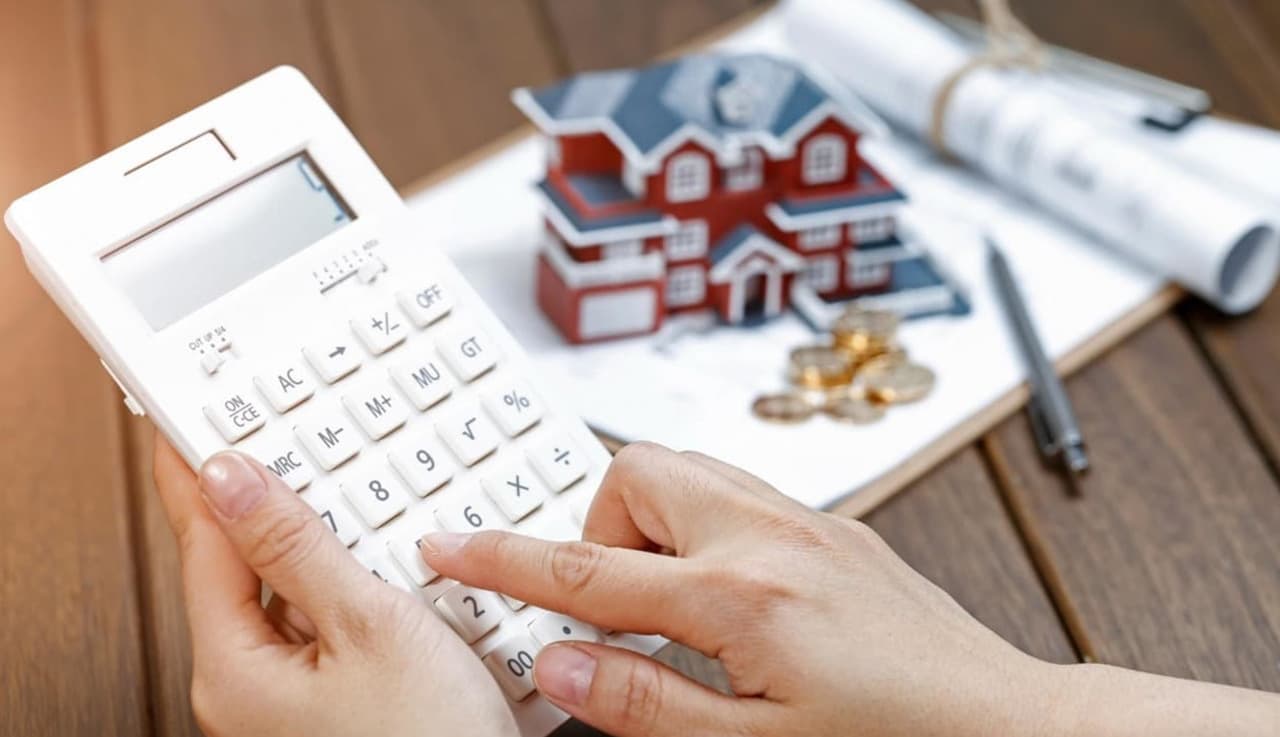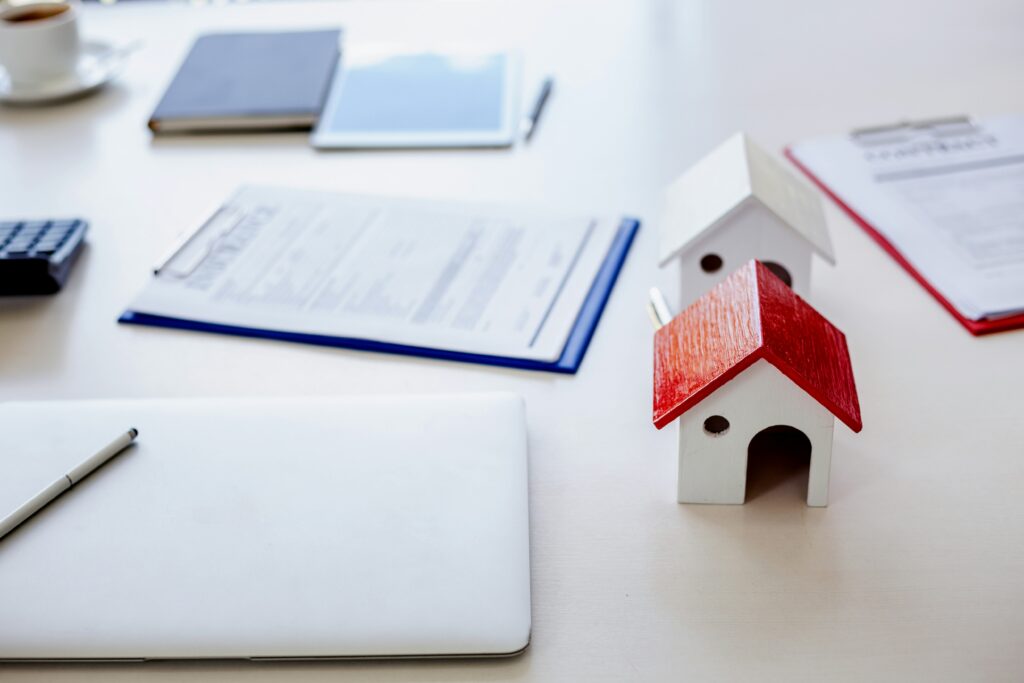How Much Does Conveyancing Cost?

Estimated reading time 8 minutes
Whenever you buy or sell a home, there are always a variety of costs to keep in mind. The marketing of the home, the mortgage fees, removal costs, stamp duty and the EPC are just some. When you factor in the conveyancing fees too, it can soon mount up. Without the conveyancing fees though, the move isn’t going to happen!
At the time of writing conveyancing costs the average buyer, approximately £1,500, with the conveyancing costs for a seller coming in a little less at approximately £1,100. Of course, various factors come into play, and you could see fees for your purchase or sale come in much cheaper, or more expensive. Leasehold properties can see a further £200-£300 added to the total.
In this blog we take a look at much conveyancing costs, so you know what to expect when the time comes.
What are conveyancing fees?
Conveyancing fees are the assortment of legal costs you must pay when buying or selling a home. Think of conveyancing as the legal process that facilitates the transfer of property from one owner to another.
There are some conveyancing costs only paid for by the buyer and some only paid by the seller. You’ll see them split into two costs; the legal fees which cover the cost of your conveyancer and the disbursements which cover the cost of third-party expenses such as searches, title deed copies and ID verification.
How much does conveyancing cost when buying a house?
When you buy a home, the conveyancing costs make up an essential part of the process. Without conveyancing, it’s safe to say, you won’t be buying the house!
As you saw in our intro, the average conveyancing costs for a buyer are around the £1,500 mark but various factors can come into play which see that rise or fall.
For example, the legal fees which cover the cost of your conveyancer can be greatly influenced by factors including:
- The cost of the property
- Whether you use a conveyancer or conveyancing solicitor
- If the home is a help to buy or shared ownership property
- Whether the property is leasehold or freehold
- The location of the property and location of your conveyancer
- Whether the transaction has any complex legalities to work through
Legal fees alone can cost anything from £300-£1,500.
Other than legal fees, you have the disbursements to cover too. For a buyer, these can be quite substantial.
Disbursements for a buyer
The disbursements make for quite a long list and costs can vary so we’ve listed the most common ones you’ll need to be aware of.
- Searches: The searches are likely to be one of the most expensive parts of the conveyancing costs. These can include searches relating to drainage, local authority searches, chancel repair and more. Expect to pay anything from £250-£500 for these.
- Anti-money laundering checks: These checks help prove you are who you say you are and will be carried out by a specialist company. You will pay no more than £20 but could find this fee rises if you currently live abroad.
- Stamp Duty: Like the searches, this could be expensive! This will all depend on the value of the property and its location. Some reports state that the average stamp duty cost is currently around £2,000.
- Bank transfer fee: The payments to make sure all the funds are moved on the day they should require a telegraphic transfer. The solicitor will make sure this happens. Expect a cost of £30 for this service.
- Bankruptcy search: All mortgage lenders will want to see that those they are lending to are a safe option. This search will uncover any previous bankruptcy and should cost about £5.
- Property fraud check: This is how you check that the money you are sending is being sent to a reputable legal firm or individual. It’s a small cost but will give you added peace of mind. You should pay about £10.
There are a variety of other potential disbursements you may have to pay for. If you were gifted the deposit for the home, used a help-to-buy scheme or had a lifetime ISA, additional costs would be accrued.
How much does conveyancing cost when you sell a house?
When you sell a house, you still have conveyancing costs to cover. The legal fees will likely be a little cheaper than if you were buying a home, but this will all depend on the level of work expected of the conveyancer. The list of disbursements will be smaller though and therefore see a cheaper conveyancing bill. Sellers can expect to pay a little more than £1,000 on average.
Disbursements when selling a house
- Title deeds copy: When selling a house, you need up-to-date documentation to prove you own the home. This should cost approximately £5.
- Transfer of ownership: With you selling the house and someone else taking it on, you’ll need to transfer the ownership to the buyer. This can cost approximately £300.
- Leasehold management pack: If the home is a leasehold property, you’ll have to pay for the leasehold management pack. Costs vary greatly on these so expect anything from £300-£800 to be due.
What are the conveyancing fees for leasehold property?
Leasehold properties are a little more expensive when it comes to conveyancing. You can expect to pay around £300 more in legal fees than you would on a freehold, and then you have the disbursements on top!
For sellers, it can be expensive. As we mentioned earlier, the leasehold management pack alone could cost £800 to organise. For buyers, it still remains costly. The Deed of Covenant, the Certificate of Compliance and the Notice of Charge fee can soon add £500 or more to the total due. This means that conveyancing for a leasehold property could cost more than £1,500.
When do you pay conveyancing fees?
This will depend on whether you are the buyer or the seller. Buyers will always pay for searches in advance. However, the remaining balance for your conveyancing will be requested upon completion. If you are the seller, there will likely be a small upfront charge with the rest being paid as the conveyancing is completed or when the property sale goes through.
Is a conveyancer cheaper than a solicitor?
You could choose a conveyancer or a solicitor to help you with the conveyancing but one could be more advantageous than the other. Both can handle conveyancing, but a solicitor is more adept with a host of legal issues. This could be beneficial if the property purchase or sale hit any unexpected bumps along the road. As a result of their more extensive abilities, you’ll pay more for a solicitor than a conveyancer in most cases.
How long will conveyancing take?
Conveyancing should take approximately 8-12 weeks from the moment an offer is accepted; however, this can vary. If the property is leasehold, it should be expected that the timeline will be a little longer. In addition, if the property chain is long or the searches bring up any issues, you could see conveyancing takes much longer than you expect.
How much does conveyancing cost if you remortgage?
If you are remortgaging your home, you may have to pay conveyancing fees. If you are staying with the same lender and borrowing more or taking advantage of a new rate, you won’t need to pay for any legal work. Should you be moving to a new lender though, you will. For them, it’s a new, unknown customer with an unknown property. This could set you back around £300 with a few small fees accrued for some basic searches added on top. In many cases, you will be able to forego the legal fees – one of the more costly elements of conveyancing – when you remortgage as lenders often cover the costs as part of an incentive to borrow with them.
Can you make your conveyancing costs cheaper?
Firstly, do lots of research. Compare prices as much as you can to get an idea of what is likely to be charged. Armed with this information, investigate if the disbursements are included. It could be that you have found what you think is a bargain price only to discover a further £1,000 will be added upon completion.
Then look at fixed fee conveyancing and no sale no fee conveyancing. These can save you money as you could have a set price to pay that won’t change, or nothing to pay at all should the transaction not go through.
If you are looking to sell your house fast and want to keep costs low, speak to Bettermove. We allow you to sell your house for free, saving you the costly legal fees you might encounter when trying to sell via the more traditional avenues. With an offer ready to be made today, you can sell your home in a timeframe that suits you and receive the exact amount you are offered. Contact our team of cash house buyers today to find out more.



